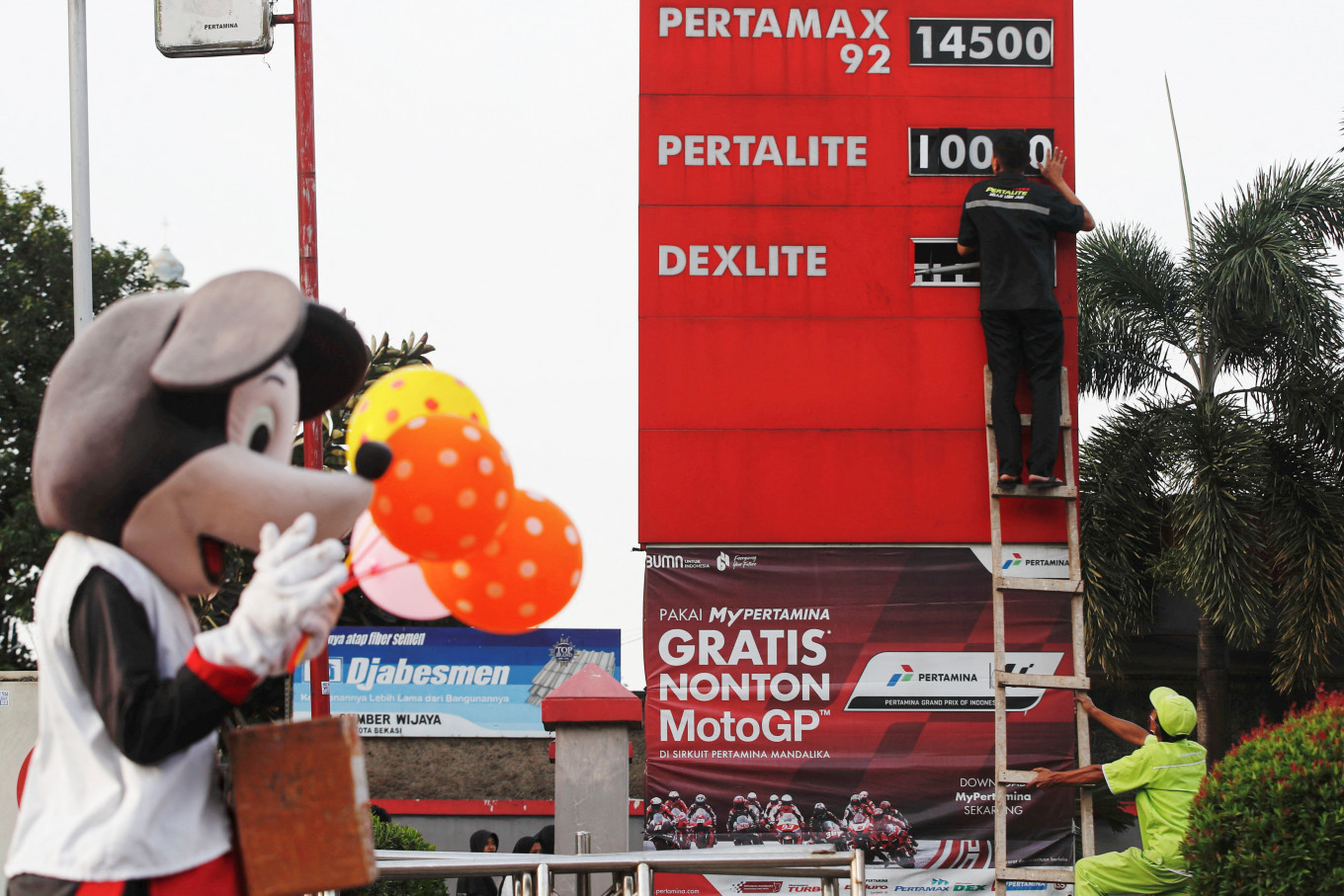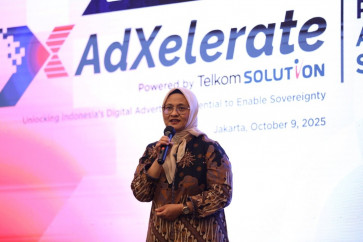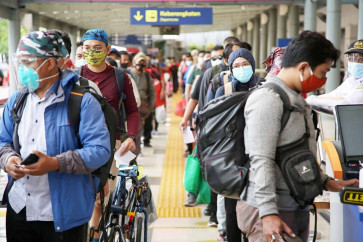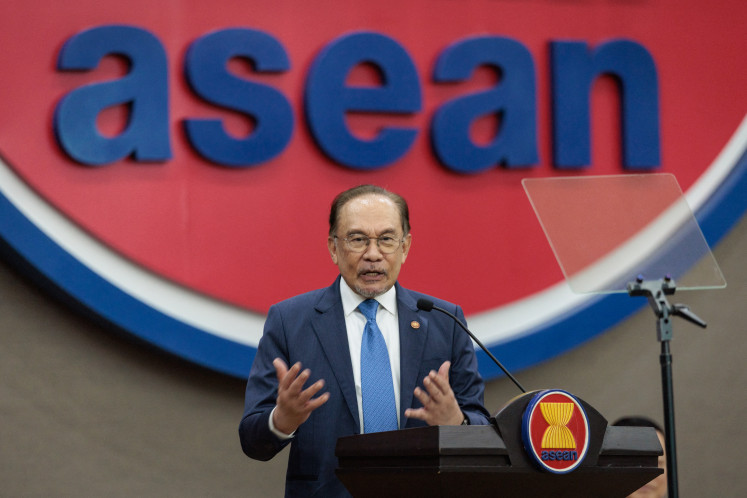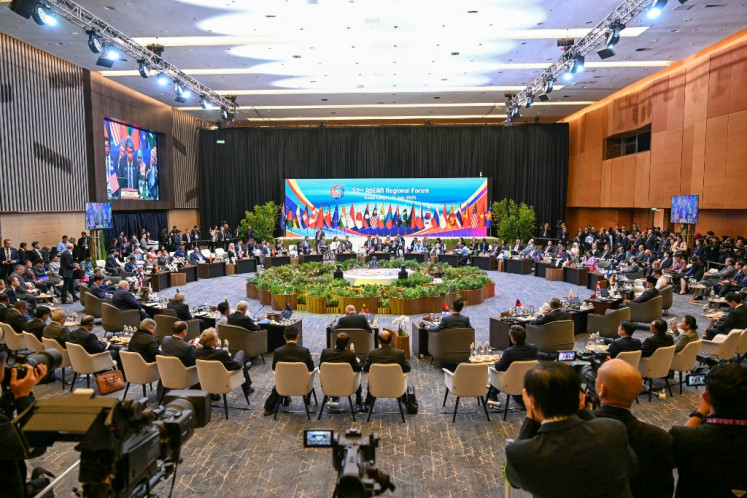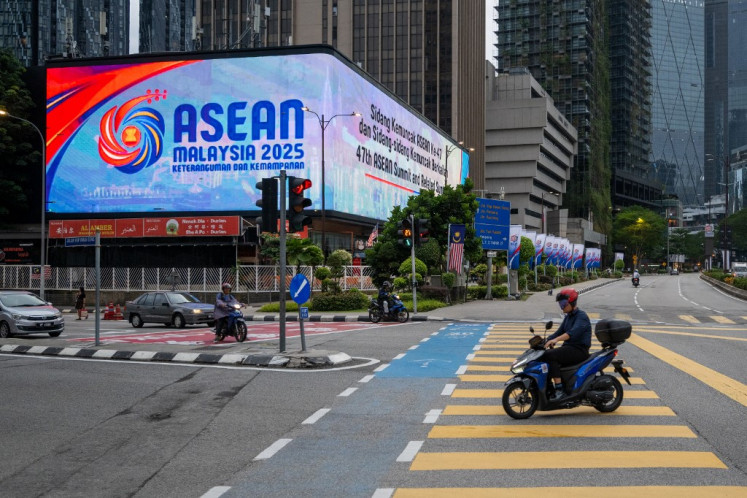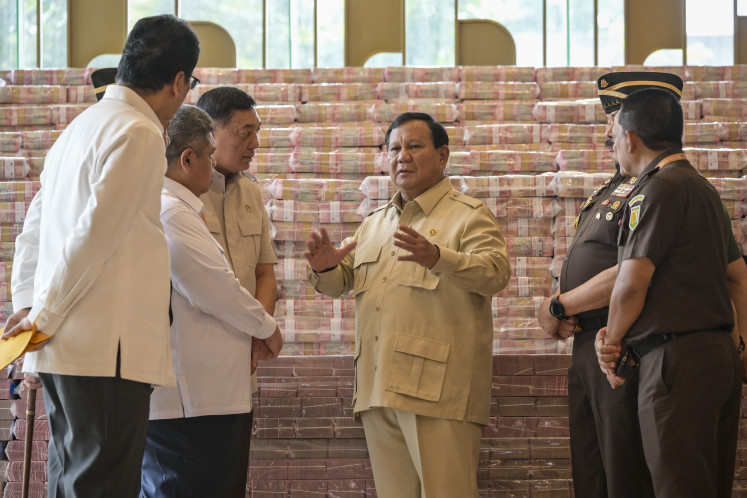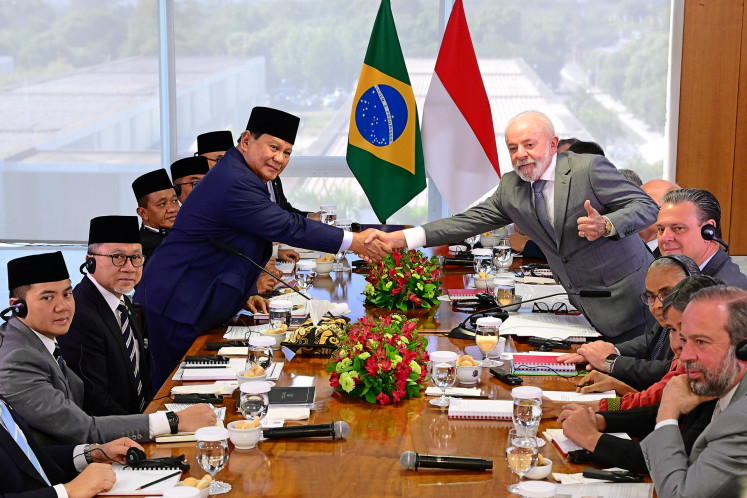Popular Reads
Top Results
Can't find what you're looking for?
View all search resultsPopular Reads
Top Results
Can't find what you're looking for?
View all search resultsSubsidy reform: Never say never
Experts have pointed to the distorting effect of subsidies, known as a misallocation of resources, meaning that funds do not go where they are most useful.
Change text size
Gift Premium Articles
to Anyone
O
ur government spends a significant chunk of state revenue on a single purpose: to make energy appear cheap for consumers and enterprises.
But that comes at a cost.
Energy subsidies and compensation, which essentially serve the same purpose, totaled Rp 551 trillion (US$35 billion) last year, more than a tenth of the entire state budget.
That money could have been spent on many other things instead. For whatever reason, health care and education are usually the two areas that are mentioned first when this issue is raised. Rp 551 trillion could also go a long way toward building infrastructure, including industrial estates, which would have substantial employment and economic multiplier effects.
Experts have pointed to the distorting effect of subsidies, known as a misallocation of resources, meaning that funds do not go where they are most useful. At a national level, that is a very costly mistake to make.
Ironically, making gasoline cheaper than it normally would be creates a competitive advantage for combustion engine cars, which the government then needs to counter with yet more subsidies for electric vehicles (EVs).
Of course, none of that helps the poorest Indonesians, who can afford no vehicles at all, with or without subsidies.
Subsidizing fossil fuel consumption also runs counter to the country’s energy transition because it makes it cheaper to drive polluting vehicles and discourages efforts to reduce energy wastage in homes, offices and factories around the country.
Moreover, artificially low electricity prices create a market environment that is hostile to renewable energy, as independent power producers need appealing feed-in tariffs to make investment in clean electricity generation profitable.
All these arguments against energy subsidies, particularly subsidies that promote fossil fuel consumption, are well established.
However, slashing such spending at the risk of a popular backlash that could be exploited by opposing political forces requires tremendous political resolve.
President Joko “Jokowi” Widodo may have failed to adequately appreciate this ahead of or early on in his first term in office, when he vowed to reform subsidies.
Granted, tackling this hot potato at a time when Jokowi was still busy consolidating support for his young administration would have been a risky political move, and from a public policy perspective, it likely was not at the top of his mind, at least not as much as other priorities, such as infrastructure development.
The picture was a very different one after Jokowi was reelected, however. By that time, he had established strong alliances giving him substantial sway in policymaking during his second term. More importantly, he faced no election at the end of it.
The ideal time to tackle subsides was in 2019, before the COVID-19 pandemic hijacked the agenda. Inflation was hovering around 3 percent at the time, safely within the central bank’s targeted corridor of 2 to 4 percent.
That opportunity was missed, but there is no point crying over spilled milk.
To Jokowi’s credit, his government did take meaningful action by cutting fuel subsidies in September of last year. It was much harder to do at that time, because inflation was rising fast amid high global commodity prices.
On the other hand, a ballooning subsidy allocation in the state budget really left no other sensible option, which meant the measure may have been easier to sell politically at that time.
While it naturally alleviated the pressure on the budget, the fuel price hike marked an adjustment of a policy, not a reform.
Whoever holds the reins in Jakarta, whether now or after the February 2024 elections, might be tempted to just wait out the issue of fuel subsidies, as a long-term shift to EVs will eventually drive down gasoline use. Yet that only makes the issue of electricity subsidies all the more pertinent.
There is no way around the fact that someone needs to get the job done, if not the current government, then hopefully the next. Never say never.

